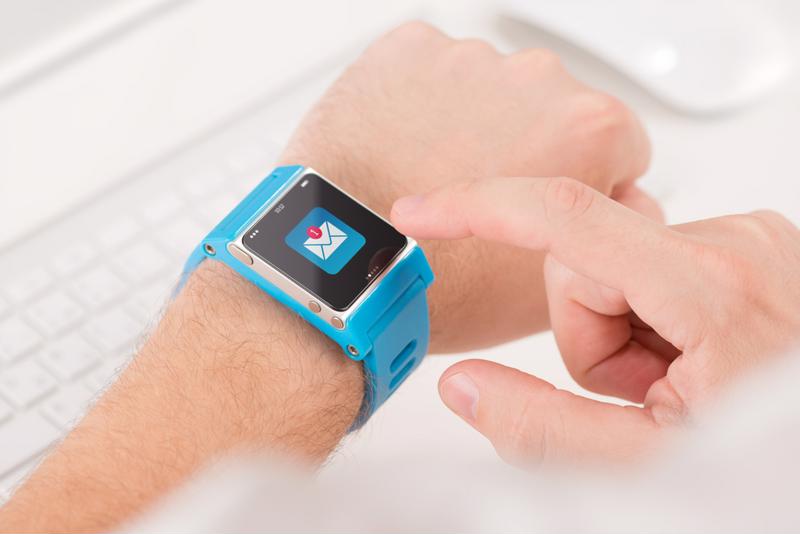Business processes and the applications workers use to get the job done are closely linked. As organizations in just about every sector get more dependent on technology, companies depend on their apps to empower users to complete processes in an efficient way. Health care is not immune to this movement, and the rise of wearable devices is adding another layer of complexity to the sector.
A recent Medscape report discussed the way the Apple Watch could transform the health care industry, and many of its points emphasize how wearable technology has incredible potential, but only if apps and services can be designed to deliver significant value.

Smart watches could fuel health care innovation.
The transformation that comes from wearables
The consumer-focused implications of wearables have already gotten plenty of attention, but there is also considerable potential for the technology to support digital intervention strategies. Citing data from the Mayo Clinic, the news source explained that using various monitoring sensors in conjunction with Web apps, mobile apps, text messaging and telemedicine plans can contribute to improved cardiovascular disease treatment.
Considering all of this in light of how wearables are already used - to track individuals' heart rate, blood pressure and similar physical characteristics in real time - showcases the potential offered by wearables. The report noted that wearables present health care organizations with a win/win situation, as the technology can be used for a diverse range of tasks, including:
- Serving as role locators for various teams.
- Giving users tools to complete basic administrative functions.
- Improving hospital workflow efficiency.
All of these capabilities can only come into play when processes and applications are aligned across a variety of device types, and modern business process management solutions are emerging to make that possible.
"Application flexibility can enable wearable device innovation in health care."
BPM can empower users leveraging wearables
A device is only as good as the applications it can support, and apps are only as good as the processes they empower users to handle. BPM tools are increasingly focused on serving as application development platforms. This functionality lets non-IT users quickly rollout new apps aimed at solving specific problems by mixing and matching pre-existing workflows, data integration tools and interface elements.
Application flexibility can enable wearable device innovation in health care. BPM solutions free users to set aside longstanding technology restrictions and either create or customize apps to ensure the technologies they are using everyday meet their needs in the most efficient way possible.
Appian is a software company that automates business processes. The Appian AI Process Platform includes everything you need to design, automate, and optimize even the most complex processes, from start to finish. The world's most innovative organizations trust Appian to improve their workflows, unify data, and optimize operations—resulting in better growth and superior customer experiences.
- Gartner® Market Guide for Business Process Automation (BPA) Tools 2023
- Gartner® Low-Code Magic Quadrant™ 2023
- Forrester DPA Wave 2023: Digital Process Automation Software
- Gartner® Critical Capabilities for Enterprise Low-Code Application Platforms (LCAP)
- Forrester Total Economic Impact™ (TEI) of Appian 2023 - 95% Faster Processes
- Everest Group PEAK Matrix® - Process Orchestration 2023
- Gartner® Emerging Tech Impact Radar: Hyperautomation 2023
- Appian Ranked by Gartner #1 for Business Workflow Automation with Integration Use Case in Low-Code Report
- Appian named a leader in the 2023 Gartner Magic Quadrant for Enterprise Low-Code Application Platforms
- AON Transforms Reinsurance Claims Processing with Appian
- Appian AI Copilot Delivers Practical Value to Boost Developer Productivity
- Appian Opens New APAC Headquarters in Sydney
- New Appian Platform Democratizes A.I. for Process Automation
- Appian Awarded $2.036 Billion in Lawsuit Against Pegasystems
- Generative AI vs LLMs: What's the Difference?
- AI Process Automation: 4 Predictions for the Age of AI
- Why Data Silos Are Problematic
- Generative AI For Insurance
- Public vs Private AI Explained
- How to Use AI Process Optimization
- Procurement vs Acquisition: What's the Difference?
- 7 Hyperautomation Trends to Watch
- Data Fabric's 5 Key Benefits
- KYC Process: The Complete Guide
- What is a Continuous Improvement Process & How to Implement It
- How to Optimize the Government Procurement Process
- AI/ML Use Cases: 7 Examples to Watch
- How to Align Process Mining w/ Process Automation to Drive Continuous Process Improvement [On-Demand Webinar]
- Eliminate Data Silos with an Integrated Data Fabric [On-Demand Video]
- Creating a Connected Care Enterprise [On-Demand Webinar]
- Transforming Institutional Onboarding [On-Demand Webinar]
- [On-Demand Webinar] Hyperautomation at Hyperspeed